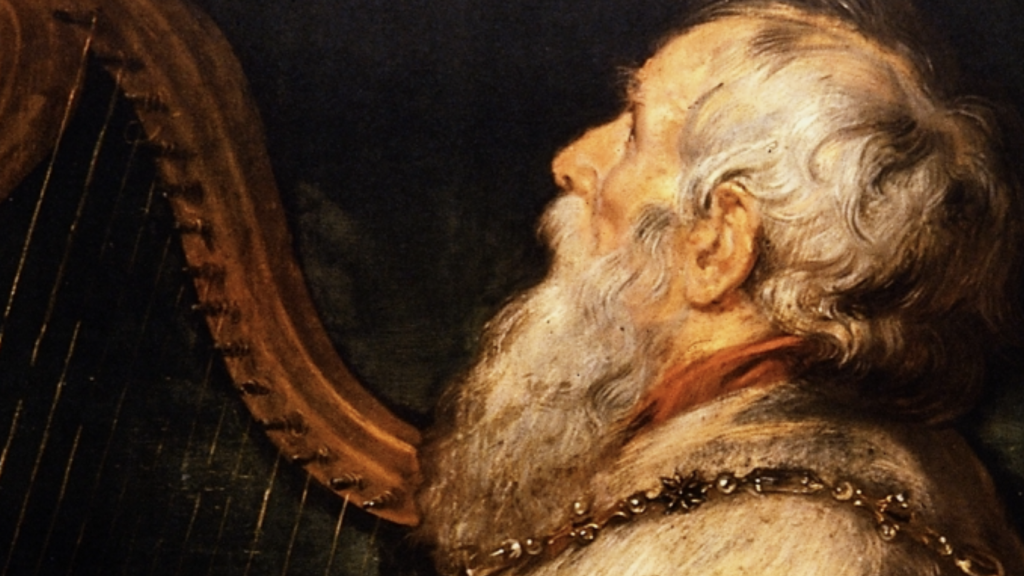Last in a series on the Book of Psalms.
People tend to think of Moses as the dominant figure of the Old Testament, but the starring role really belongs to David. In the Hebrew Scriptures, the name “Moses” occurs just over 720 times, but “David” almost 1,020 times. David is mentioned 37 times in the prophets, Moses only seven times. And the prophets are often concerned with the return of the monarchy and the rise of a king like David — descended from David.
David is the undisputed star of the “Psalter.” More than 70 psalms are attributed to him. The first two divisions of the “Psalter” are characterized as “the prayers of David” (Psalm 72:20). Royal-Davidic psalms show up at key points in the canonical arrangement: at the beginning (Psalm 2) and at the end of books two (Psalm 72) and three (Psalm 89). Meanwhile, only one psalm is ascribed to Moses (Psalm 90).
David was founder of Israel’s royal dynasty, the only dynasty to be underwritten by a divine covenant. Under his reign and that of his son, Israel underwent a social and liturgical revolution, moving from a tribal confederation worshiping in silence at a portable tent-shrine to a centralized monarchy worshiping to musical accompaniment at a permanent and glorious Temple in Jerusalem.
In the words of the Reformed theologian Peter Leithart, Israel moved “from silence to song” during the reign of David and Solomon.
As songs — and as the largest book in the Bible — the psalms testify to this. Moreover, they overwhelmingly testify to the Son of David who is to come.
They speak of a Son of David who is also the Son of God (Psalms 2:7; 89:26–27).
They speak of a king who is the Messiah, the Christ, the Anointed One (Psalms 2:2; 18:50; 20:6; 28:8; 84:9; 89:38, 51; 132:10, 17).
They foretell a kingdom that is international in scope (Psalms 2:8; 72:11; 89:27), and they call for the nations to acknowledge the God of Israel (22:27–28; 47:8–9; 67:1-7; 69:29, 31–35; 86:9; 96:8-9; 100:1–2, 4).
And they speak of a Son of David whose rule will be everlasting (Psalms 89:35–36; 21:4).
Thus the Old Testament moves from the Mosaic to the Davidic, from the tabernacle to the Temple, from silence to song.
In the time of David’s dynasty, history still reads like a story in search of an ending, but the ending is imminent. And indeed it comes with Jesus, who is born in the city of David and called the Son of David.
The psalms are witness to Israel’s expectation in the centuries just before history’s climactic moment. The moment was so joyful, the prayers so thankful, that they could not simply be recited. They needed to be sung.

